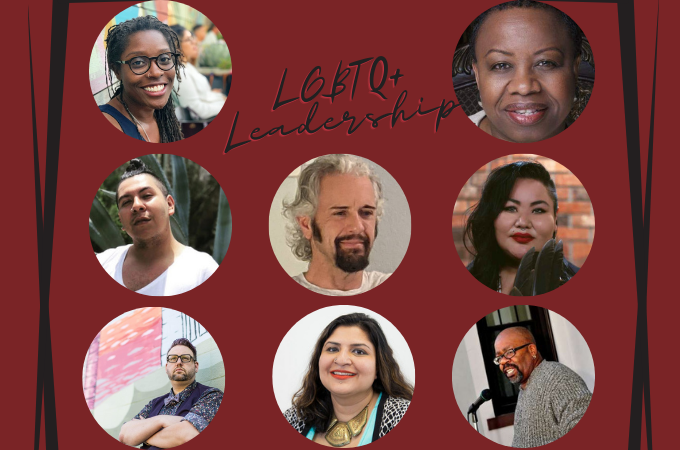Ruth Sotomayor ’90, ’02, ’11 is always looking for opportunities that will allow her to better assist the at-risk students she serves in the Redlands Unified School District. When she learned about the Certificate in LGBTQ Leadership, offered through the University of Redlands School of Continuing Studies, she jumped at the chance to enroll in the program.
Launched in February, the six-month online certificate program equips students with an in-depth understanding of the key issues facing members of the LGBTQ community while building new approaches to leadership.
“As awareness of the LGBTQ community continues to grow with the help of advocacy and social-service organizations in schools, colleges, and community centers, the need and demand for specialized LGBTQ leadership training has risen,” says Amy Moff Hudec, director of the School of Continuing Studies. “This certificate is designed to address this need, providing training for mission-driven individuals, aspiring leaders, teachers, and activists to be more informed and experienced allies.”
A passion to help
After teaching for 20 years, Sotomayor pivoted into a career in counseling, returning to the University of Redlands, where she earned her undergraduate degree in sociology and anthropology, to earn a Pupil Personnel Services Credential in School Counseling through the School of Education. When the Redlands Unified School District created a Local Control and Accountability Program (LCAP), an educational tool aimed at accomplishing goals to improve student outcomes, the Academic Case Carrier Program—in which Sotomayor now works—was funded.
In order to improve the achievement of homeless, foster, and other at-risk youth, the program connects students to community resources and provides them with academic, social, and emotional support. “My passion is to help people, which is why I went into education in the first place, and why I wanted to make the change to work with students and their families one-on-one, at a more personal level,” says Sotomayor.
Responsible for the outcomes of the 50 students in her caseload, Sotomayor was attracted to the Certificate in LGBTQ Leadership because she felt she had never received comprehensive training for supporting members of this marginalized community.
“Some of my students and their family members are part of the LGBTQ community and I have friends who identify as such who have told me that they never felt supported in the education system,” she says. “This certificate gave me the knowledge to be a better educator in my community.”
Sharing life experiences
One of the highlights of the program, Sotomayor notes, was getting to meet and network with course presenters who brought their own life experience into their teaching. Sotomayor credits Course Facilitator Donovan Ackley, who worked with Moff Hudec and Michael Adee to enlist presenters whose experiences represented a diverse population, for her enjoyable learning experience.
“In creating the program, it was essential to me that we respond to current events,” says Ackley, who, along with over 20 years of higher education teaching experience, has a background in queer and community organizing. “We needed to include indigenous voices and experiences from the underrepresented trans community—I approached people who I’ve worked within the past and asked them to be a part of the program, and everyone said ‘yes.’”
Because of the program’s online format, leaders and speakers from across the country were able to contribute. In this sense, Ackley says, the COVID-19 pandemic worked to the program’s advantage. “So many of our presenters, such as Bishop Tonyia Rawls, Erin Swenson, and Candi Brings Plenty, are active in the field of organizing and have extremely busy schedules,” he says. “These participants wouldn’t have been able to fly in from where they live, so the virtual setting really allowed for more robust programming.”
For the duration of the course, Ackley lent a degree of fluidity to the content of each session—some of which focused on racism, gender identity, and creating safe spaces. Being able to shift the course content in response to the questions students were asking and the discussions that were taking place allowed for a more personalized learning environment.
This personalized approach encouraged Sotomayor to ask questions and seek answers that will ultimately enhance her work. “I constantly remind my team that we have to address the needs of LGBTQ students because many of them have had negative experiences in the school system,” she says. “One of the biggest challenges of building awareness of the LGBTQ community is that it causes people to look inward, and that can be scary. But we really just need to allow people to have that space to ask questions and let them know that no question is wrong as long as their heart is in the right place.”
Learn more about the School of Continuing Studies.






